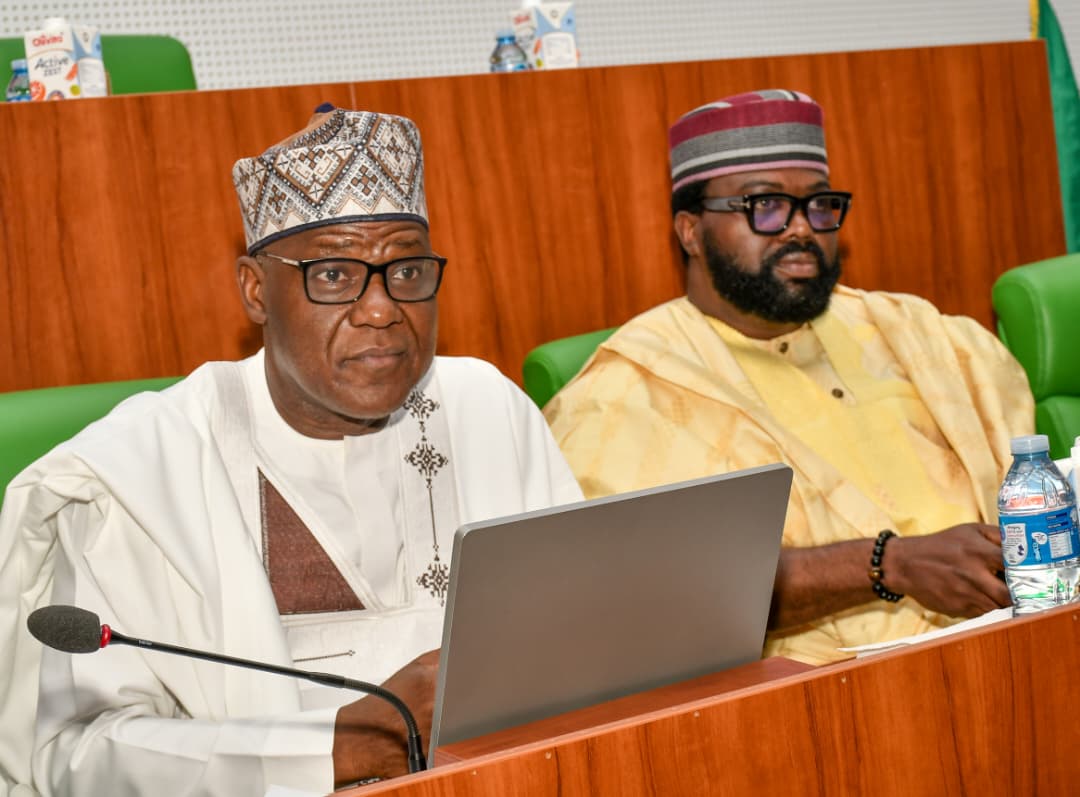While the former Speaker Dogara praised President Tinubu’s tax overhaul, he urged the government to deploy revenues transparently

Former Speaker of the House of Representatives, Rt. Hon. Yakubu Dogara, has described President Bola Tinubu’s sweeping tax reforms as “the most audacious overhaul of Nigeria’s fiscal framework in decades,” calling for strict transparency and sustained implementation to win public trust.
Dogara made the remarks on Tuesday while delivering the maiden Distinguished Parliamentarian Lecture organised by the House of Representatives Press Corps at the National Assembly Complex, Abuja.
In the lecture themed “Navigating Tax Reform in Nigeria: Insights on President Tinubu’s Policies” Dogara traced the origins, scope and expected impact of the reforms anchored on the Nigeria Tax Act (NTA) 2025 and accompanying legislation.
A Troubled Economy
Dogara said President Tinubu inherited “economic debris” from excessive deficit financing via Ways and Means, to dual exchange rates that enriched a few, and crude-oil forward sales tied to foreign loans.
“By the time President Tinubu took office, N22.7 trillion had been printed and injected into the economy, destroying the value of the naira. Some anointed people were making hundreds of millions off forex allocations without producing any goods or services whatsoever,” he said.
These distortions, he argued, made “urgent, nay revolutionary” reforms unavoidable.
Four Cornerstone Laws
Dogara outlined the measures, which consolidate 16 federal tax statutes into four principal Acts, all slated to take effect in January 2026:
Nigeria Tax Act (NTA) 2025 – unifies multiple tax laws, extends coverage to digital services and virtual currencies, and introduces a 15 % minimum effective tax rate for large companies.
Nigeria Tax Administration Act (NTAA) 2025 – modernises assessment and compliance rules, mandates a single Taxpayer ID and creates a Tax Ombudsman.
Nigeria Revenue Service (Establishment) Act (NRSEA) 2025 – replaces the FIRS with a more powerful, transparent revenue agency.
Joint Revenue Board (Establishment) Act (JRBEA) 2025 – harmonises federal-state revenue sharing and strengthens dispute resolution.
Reliefs include exemptions for firms with turnover below ₦100 million, rent reliefs for salaried workers, tax credits for upstream oil operators, and full income-tax exemption for anyone earning ₦800,000 or less annually. Multiple sectoral levies are scrapped in favour of a single 4 % development levy, while digital gains, crypto assets and forex earnings enter the tax net.
Dogara clarified that a much-discussed 5 percent fuel surcharge is not a new tax but a restatement of an existing FERMA Act provision, stressing it will exclude kerosene, cooking gas and CNG, and only commence after a Finance Ministry gazette.
Implementation Challenges
While lauding the boldness of the reforms, the former speaker warned of uncertainty in interpretation, technological readiness, skilled manpower, and short-term compliance costs.
“The drive towards full digitalisation, from e-invoicing to automated filings, promises efficiency but demands significant upgrades in our digital capabilities and cyber-security,” he noted.
Dogara insisted that trust is the ultimate currency of taxation: “True tax reform is not about raising rates, but about raising trust. When citizens can see where their naira goes, they are proud to give it.”
He urged government to deploy revenues transparently to roads, power, hospitals and schools, adding that successful execution could “cement President Tinubu’s place in history as the undisputed most consequential economic reformer of our time.”
Speaker of the House, Rep. Tajudeen Abbas represented by House Spokesperson Rep. Akin Rotimi Jnr., praised Tinubu’s initiative as “a decisive step toward simplifying compliance, broadening the tax net, and easing the burden on ordinary Nigerians.”
Abbas highlighted the legislature’s robust debates and stakeholder consultations in processing the bills and reaffirmed the 10th House’s commitment to transparency through livestream sessions, digital portals and community engagements.
He also restated parliament’s support for press freedom, urging journalists to fight disinformation, hold leaders accountable and promote unity: “Press freedom in Nigeria is not negotiable.”
Abbas commended the press corps for convening the lecture and hailed Dogara as a statesman whose insights provide “intellectual grounding to the ongoing discourse on fiscal reforms.”
“As we reflect today, let us stay focused on the bigger picture—building a Nigeria where taxation supports enterprise, strengthens equity, protects the vulnerable and funds the aspirations of our people,” the speaker said.

